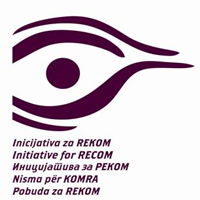(srpski) U prostorijama opštine Stari Grad ne sme biti mesta za negiranje genocida i promociju osuđenih ratnih zločinaca

Sorry, this entry is only available in srpski.


Sorry, this entry is only available in srpski.

At this year’s Book Fair, the „Defence“ Media Centre, publishing organ of the Ministry of Defence (MoD), will again present books whose author is Nebojša Pavković, and organise a panel devoted to the NATO Intervention. The panel speakers, beside the retired commanders of the Yugoslav Army (VJ)/Serbian Army (VS), Božidar Delić and Ljubiša Diković, will be Vladimir Lazarević and Vinko Pandurević, both convicted war criminals. The Humanitarian Law Center (HLC) points out that by financing and promoting books and public forums where convicts for the most serious crimes are speakers, the MoD are openly treating with contempt the victims of those crimes, and demonstrating a clear adherence to the politics that led to numerous crimes in the former Yugoslavia, and denying the facts established before the International Criminal Tribunal for the former Yugoslavia (ICTY).

 On 11 October 2019, during the annual judicial conference in Vrnjačka Banja, Serbia’s Supreme Court of Cassation presented its “Guidelines for improving court practice in handling compensation claims made by victims of serious crimes during criminal proceedings” (“Guidelines”). The Humanitarian Law Center (HLC) views the “Guidelines” as a step forward in improving the situation of victims in Serbia, and calls on the Office of the War Crimes Prosecutor (OWCP) to take a more active part in gathering the evidence needed for the adjudication of compensation claims, and for the courts to adjudicate compensation claims in the course of criminal proceedings whenever possible.
On 11 October 2019, during the annual judicial conference in Vrnjačka Banja, Serbia’s Supreme Court of Cassation presented its “Guidelines for improving court practice in handling compensation claims made by victims of serious crimes during criminal proceedings” (“Guidelines”). The Humanitarian Law Center (HLC) views the “Guidelines” as a step forward in improving the situation of victims in Serbia, and calls on the Office of the War Crimes Prosecutor (OWCP) to take a more active part in gathering the evidence needed for the adjudication of compensation claims, and for the courts to adjudicate compensation claims in the course of criminal proceedings whenever possible.

 On September 23, 2019, the Higher Court in Belgrade sentenced defendant Dalibor Maksimović to 15 years in prison for killing four persons and raping a Bosniak woman in the Bratunac area in May 1992. The Humanitarian Law Center (HLC) considers that the court erred in not awarding a property claim (compensation) to the rape victim during the trial, but instead directed her to exercise her rights in a civil proceeding.
On September 23, 2019, the Higher Court in Belgrade sentenced defendant Dalibor Maksimović to 15 years in prison for killing four persons and raping a Bosniak woman in the Bratunac area in May 1992. The Humanitarian Law Center (HLC) considers that the court erred in not awarding a property claim (compensation) to the rape victim during the trial, but instead directed her to exercise her rights in a civil proceeding.

 On September 19, 2019, the Higher Court in Belgrade sentenced defendant Nikola Vida Lujić to eight years in prison for raping a Bosniak woman in Brčko in June 1992. The Humanitarian Law Center (HLC) considers that the proceeding in this case was conducted very effectively, that the injured party had adequate protection during her testimony, and that the sentence imposed was fair and commensurate with the gravity of the act performed.
On September 19, 2019, the Higher Court in Belgrade sentenced defendant Nikola Vida Lujić to eight years in prison for raping a Bosniak woman in Brčko in June 1992. The Humanitarian Law Center (HLC) considers that the proceeding in this case was conducted very effectively, that the injured party had adequate protection during her testimony, and that the sentence imposed was fair and commensurate with the gravity of the act performed.

 On September 2, 2019, the Humanitarian Law Center (HLC) filed an initiative with the Constitutional Court for an assessment of the constitutionality and conformity of the Criminal Code (CC) with the Constitution of the Republic of Serbia, the generally accepted rules of international law and ratified international treaties. The HLC considers that the newly introduced provision of the CC concerning the prohibition of conditional release of persons sentenced to life imprisonment, without establishing an effective and efficient mechanism guaranteeing a review of a sentence to life imprisonment, directly violates the provision of Article 25 of the Constitution of the Republic of Serbia, and Article 3 of the European Convention on the protection of human rights and fundamental freedoms (Convention).
On September 2, 2019, the Humanitarian Law Center (HLC) filed an initiative with the Constitutional Court for an assessment of the constitutionality and conformity of the Criminal Code (CC) with the Constitution of the Republic of Serbia, the generally accepted rules of international law and ratified international treaties. The HLC considers that the newly introduced provision of the CC concerning the prohibition of conditional release of persons sentenced to life imprisonment, without establishing an effective and efficient mechanism guaranteeing a review of a sentence to life imprisonment, directly violates the provision of Article 25 of the Constitution of the Republic of Serbia, and Article 3 of the European Convention on the protection of human rights and fundamental freedoms (Convention).

 The Coalition for RECOM has called on the governments of the post-Yugoslav countries to launch a joint push to resolve the fates of the 10,167 persons who went missing during the wars in the territories of Croatia, Bosnia and Herzegovina, and Kosovo. A precondition for this is that the government commissions cease acting as the harbingers of the interests of the political parties in power and treat all victims with equal importance, recognising that it is in the interest of the families and the general public that the fates of the missing persons be uncovered. The fact that in 2019 the mortal remains of only 85 persons have been identified (60 persons missing during the war in BH, and 25 persons missing in Croatia), indicates a collaboration in the obstruction of the process of resolving this difficult heritage from the shared past. It is of considerable concern that it has become a common practice that exhumation of known mass graves is not being carried out. There are serious indications that certain state institutions, such as the Ministry of Defence of the Republic of Serbia and the wartime commanders, possess information on the locations of a large number of mass graves, but that this information is being kept a “state secret” and in private archives.
The Coalition for RECOM has called on the governments of the post-Yugoslav countries to launch a joint push to resolve the fates of the 10,167 persons who went missing during the wars in the territories of Croatia, Bosnia and Herzegovina, and Kosovo. A precondition for this is that the government commissions cease acting as the harbingers of the interests of the political parties in power and treat all victims with equal importance, recognising that it is in the interest of the families and the general public that the fates of the missing persons be uncovered. The fact that in 2019 the mortal remains of only 85 persons have been identified (60 persons missing during the war in BH, and 25 persons missing in Croatia), indicates a collaboration in the obstruction of the process of resolving this difficult heritage from the shared past. It is of considerable concern that it has become a common practice that exhumation of known mass graves is not being carried out. There are serious indications that certain state institutions, such as the Ministry of Defence of the Republic of Serbia and the wartime commanders, possess information on the locations of a large number of mass graves, but that this information is being kept a “state secret” and in private archives.

Sorry, this entry is only available in srpski.